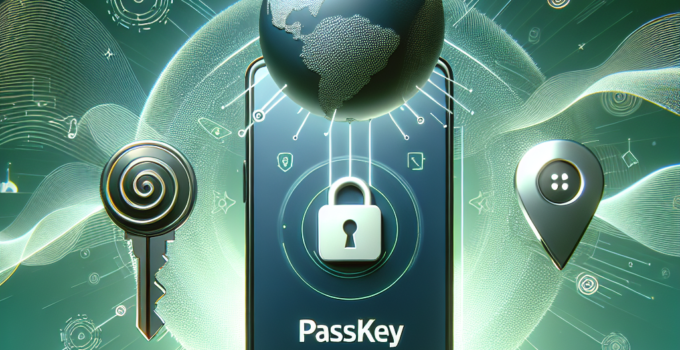WhatsApp Enhances Security with Passkey Integration on iOS. WhatsApp is introducing a significant update on iOS, integrating passkeys to enhance user security and convenience. This new feature allows users to log into their WhatsApp accounts using their iPhone’s biometric authentication—either Face ID or Touch ID—instead of a traditional password.
Apple Watch’s Next Leap: Thinner, More Durable with Innovative Materials
Passkeys are a modern authentication method designed to reduce the risk of phishing and other online attacks by eliminating the use of passwords. This change means that there is no actual password that could be compromised or a one-time SMS or authentication code that might be intercepted by malicious actors.
To enable passkeys on WhatsApp, users can simply navigate to the app’s settings, select the ‘Account’ option, and then tap on ‘Passkey’ to activate the feature. This streamlined approach leverages the existing security frameworks of iOS devices, ensuring a seamless and secure user experience.
The deployment of passkeys on WhatsApp is part of a broader move towards more secure login methods across the industry. Apple itself has supported passkeys on its devices since the release of iOS 16, alongside iPadOS 16 and macOS Ventura. This system-wide support underscores a significant shift in how security is managed across platforms, emphasizing user convenience without compromising safety.
Several major platforms and services have already adopted passkeys, indicating a growing trend towards this technology. Companies such as X (formerly Twitter), Google, TikTok, PayPal, Best Buy, Microsoft, PlayStation, and eBay have implemented passkey support, showcasing the widespread acknowledgment of its benefits.
The introduction of passkeys by WhatsApp is expected to be well-received by users, particularly those who prioritize security and ease of use. It aligns with ongoing efforts to secure digital identities in an increasingly interconnected world.
Over the next few weeks, WhatsApp will roll out passkey support to all its users, gradually enabling everyone to take advantage of this advanced security feature. This rollout is part of WhatsApp’s commitment to providing secure and user-friendly solutions, reflecting its adaptation to the evolving digital landscape.
As more users and platforms adopt passkeys, we are likely to see a significant reduction in the prevalence of online security threats related to password theft and phishing. This shift could redefine digital security norms, making the internet a safer place for personal and professional communication.
In conclusion, WhatsApp’s move to implement passkeys is a forward-thinking decision that not only enhances user security but also integrates smoothly with the existing capabilities of iOS devices. This development is a testament to the ongoing evolution of digital security technologies and the increasing importance of user-friendly security measures in our digital lives.



